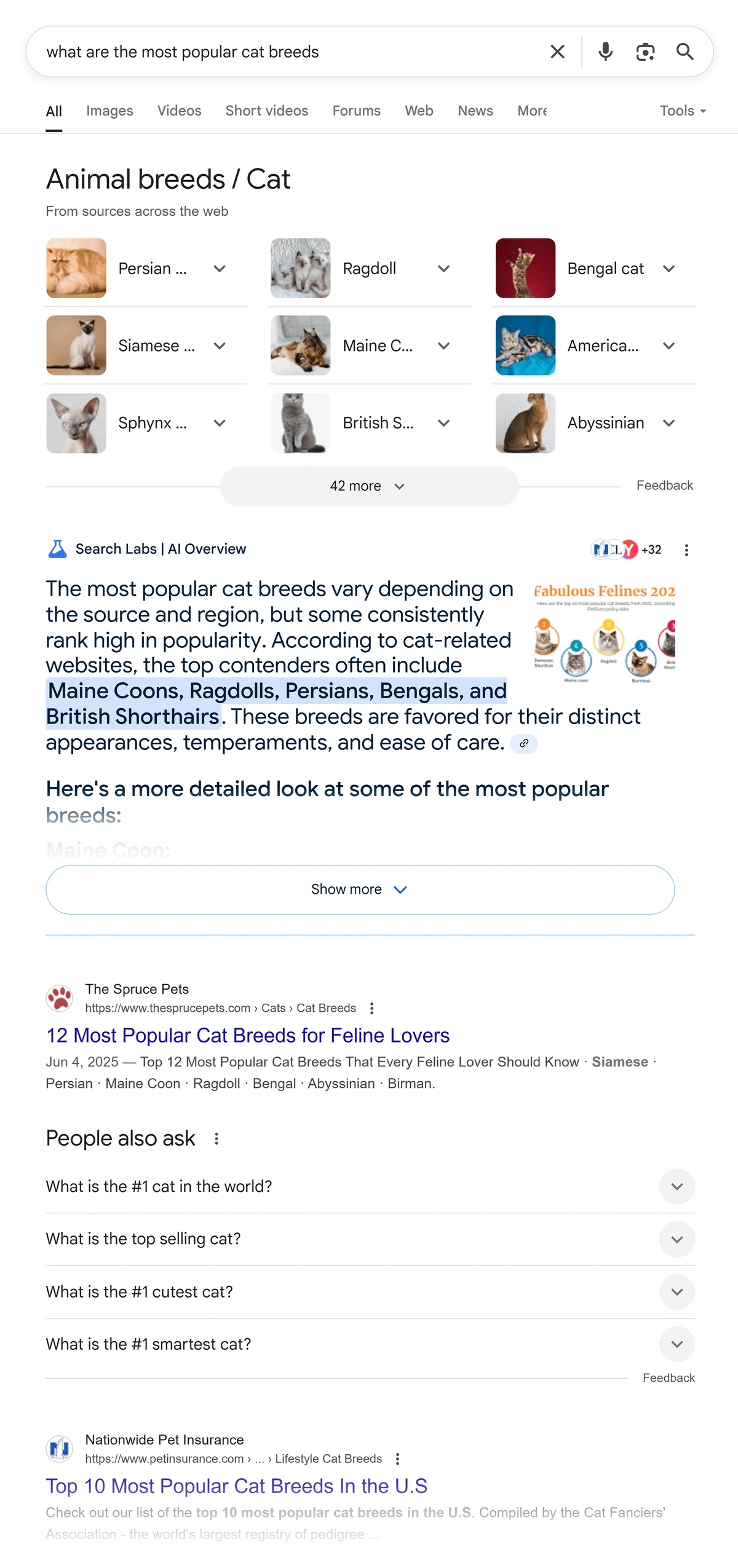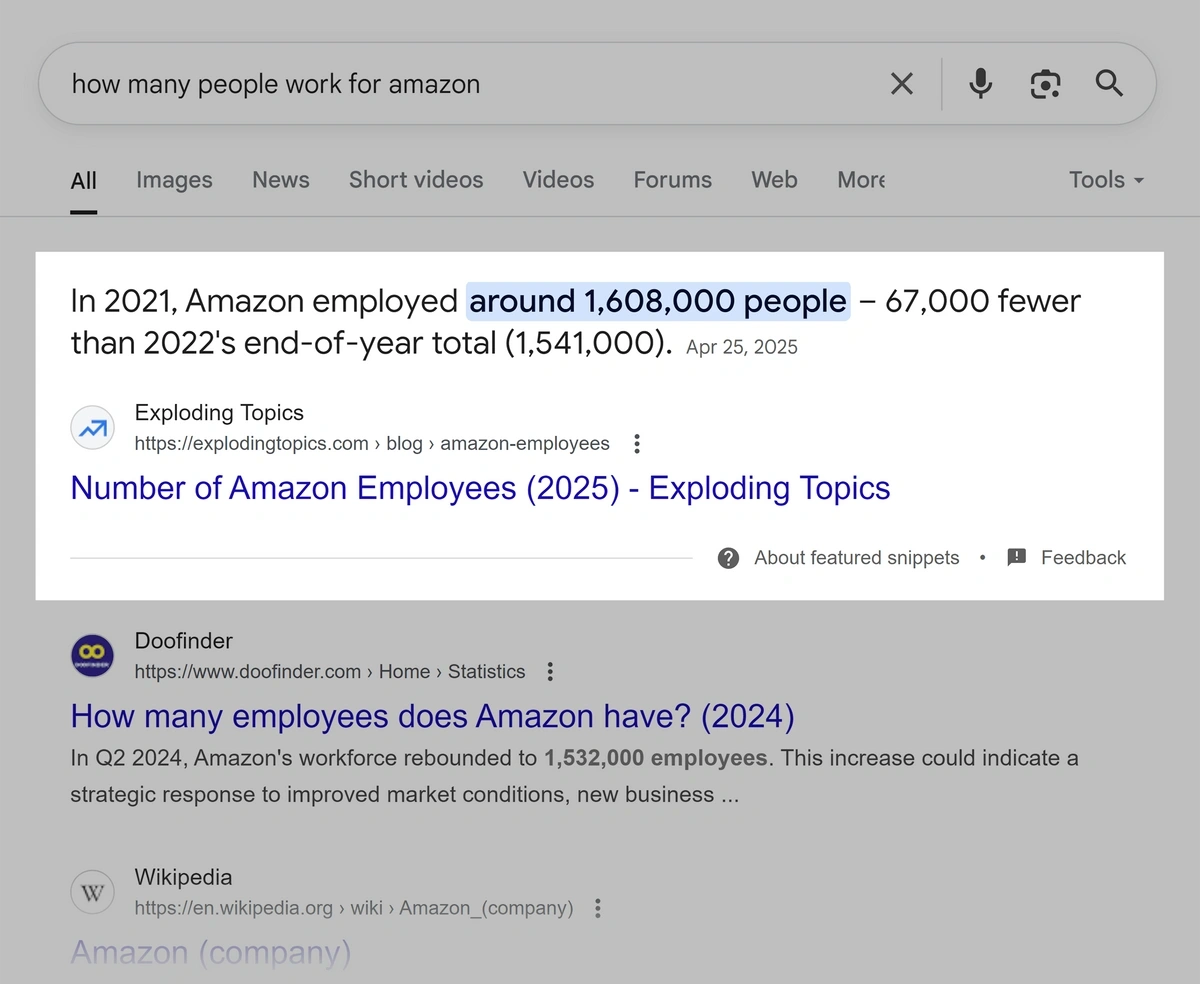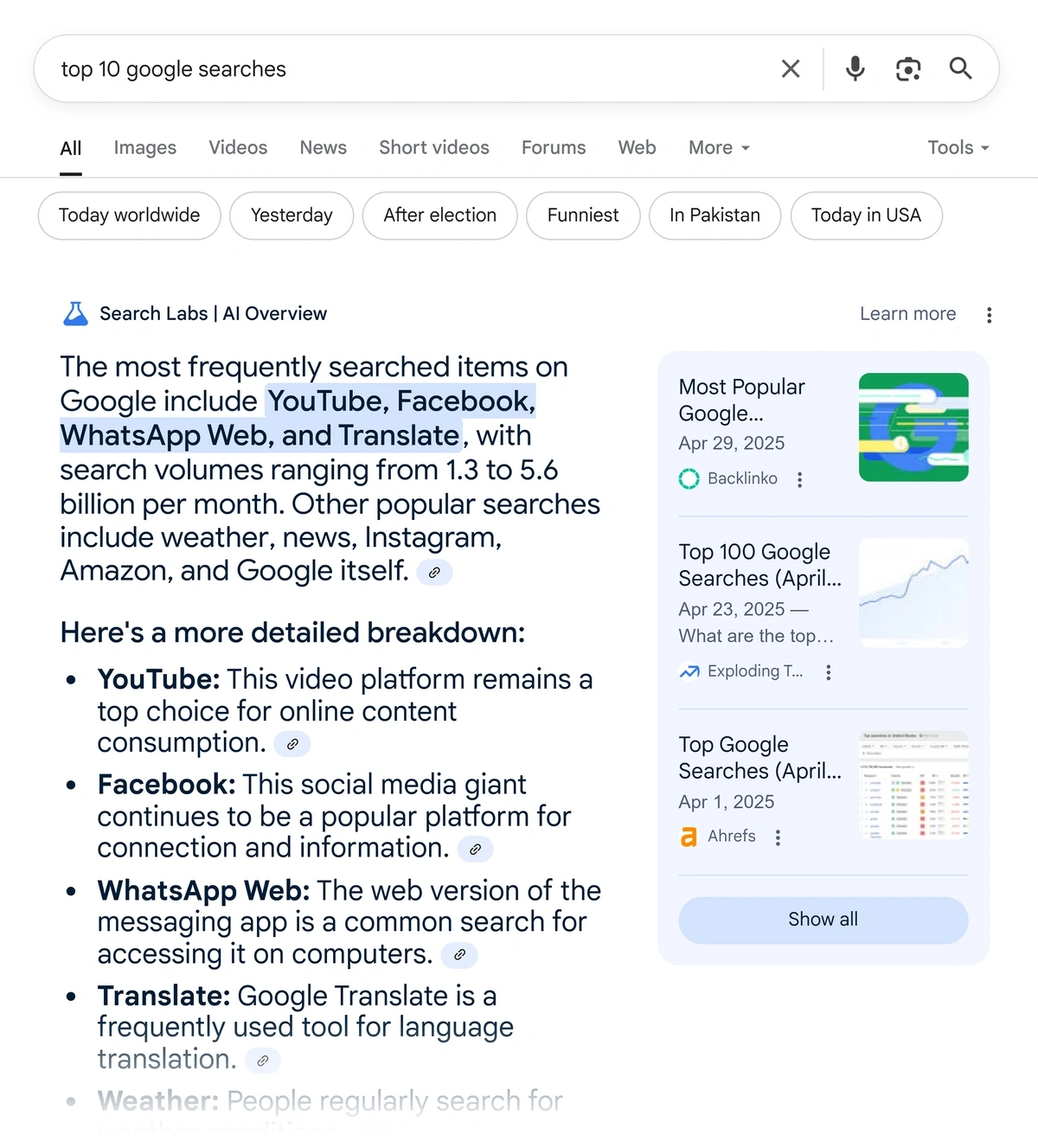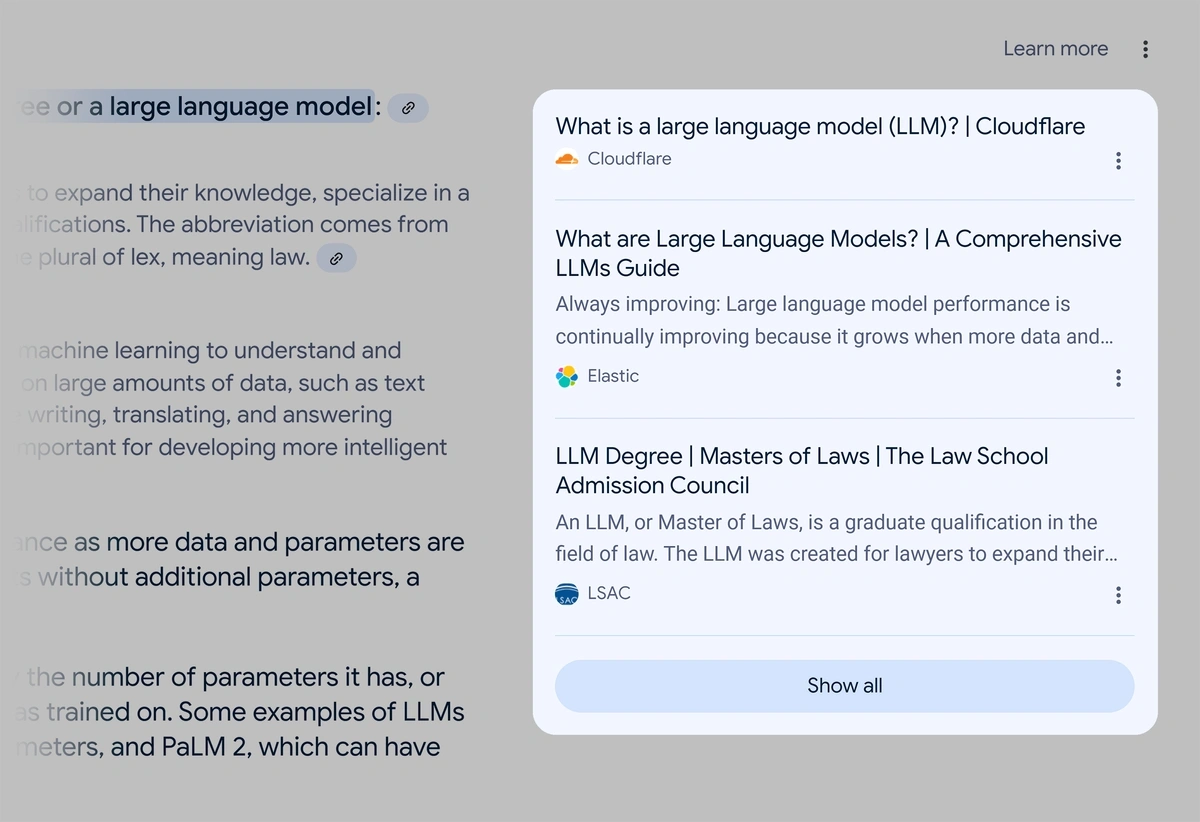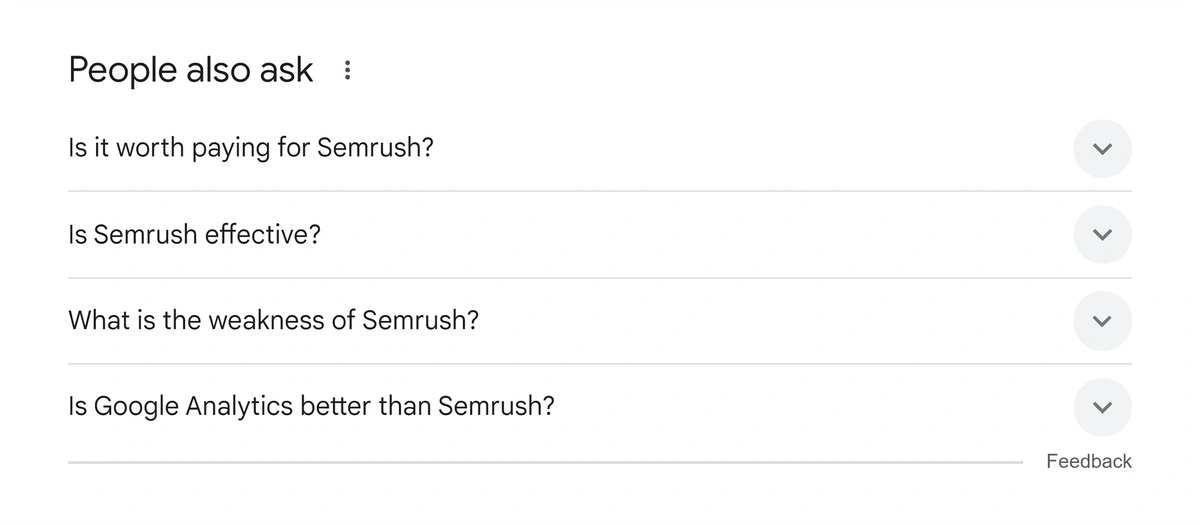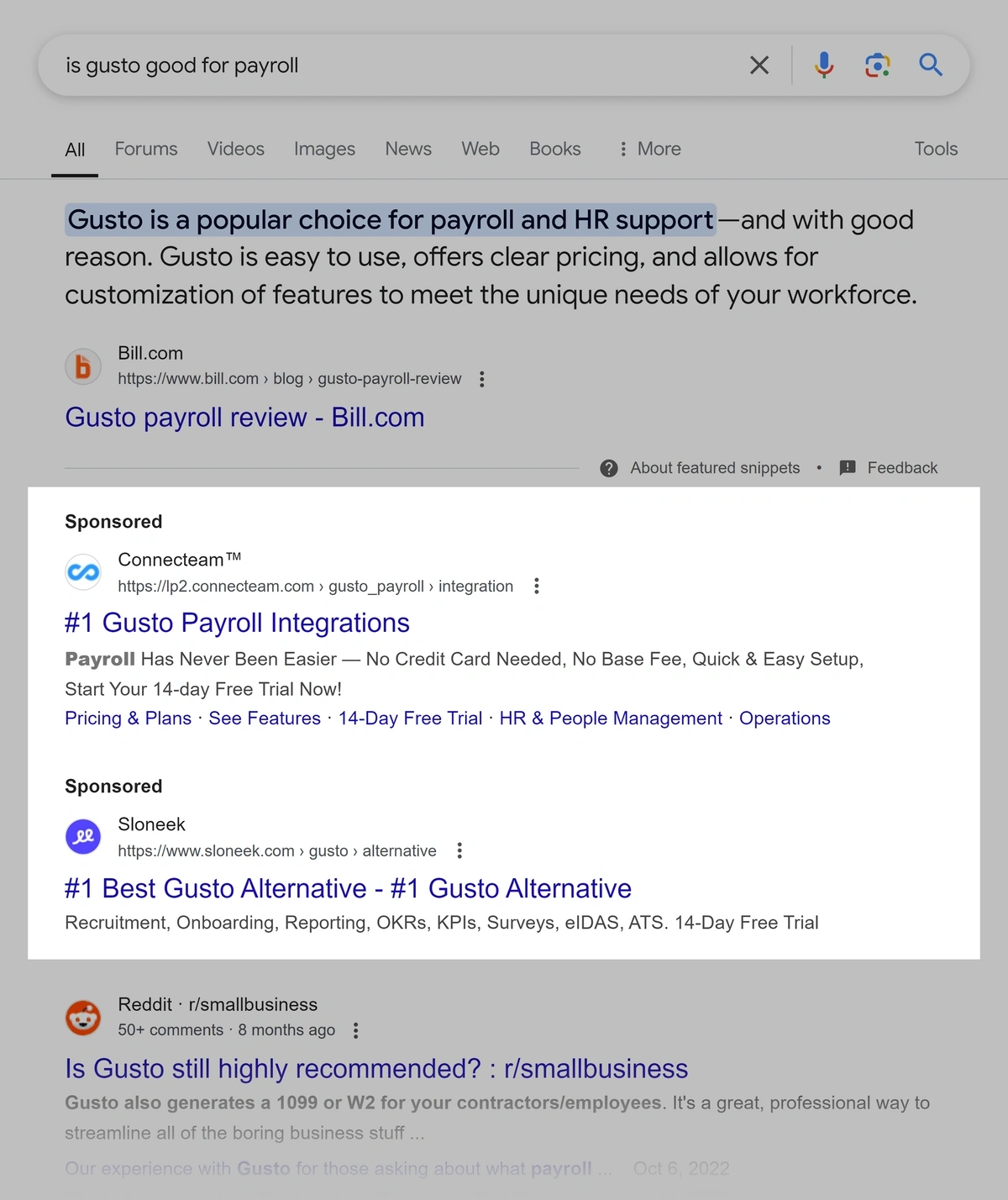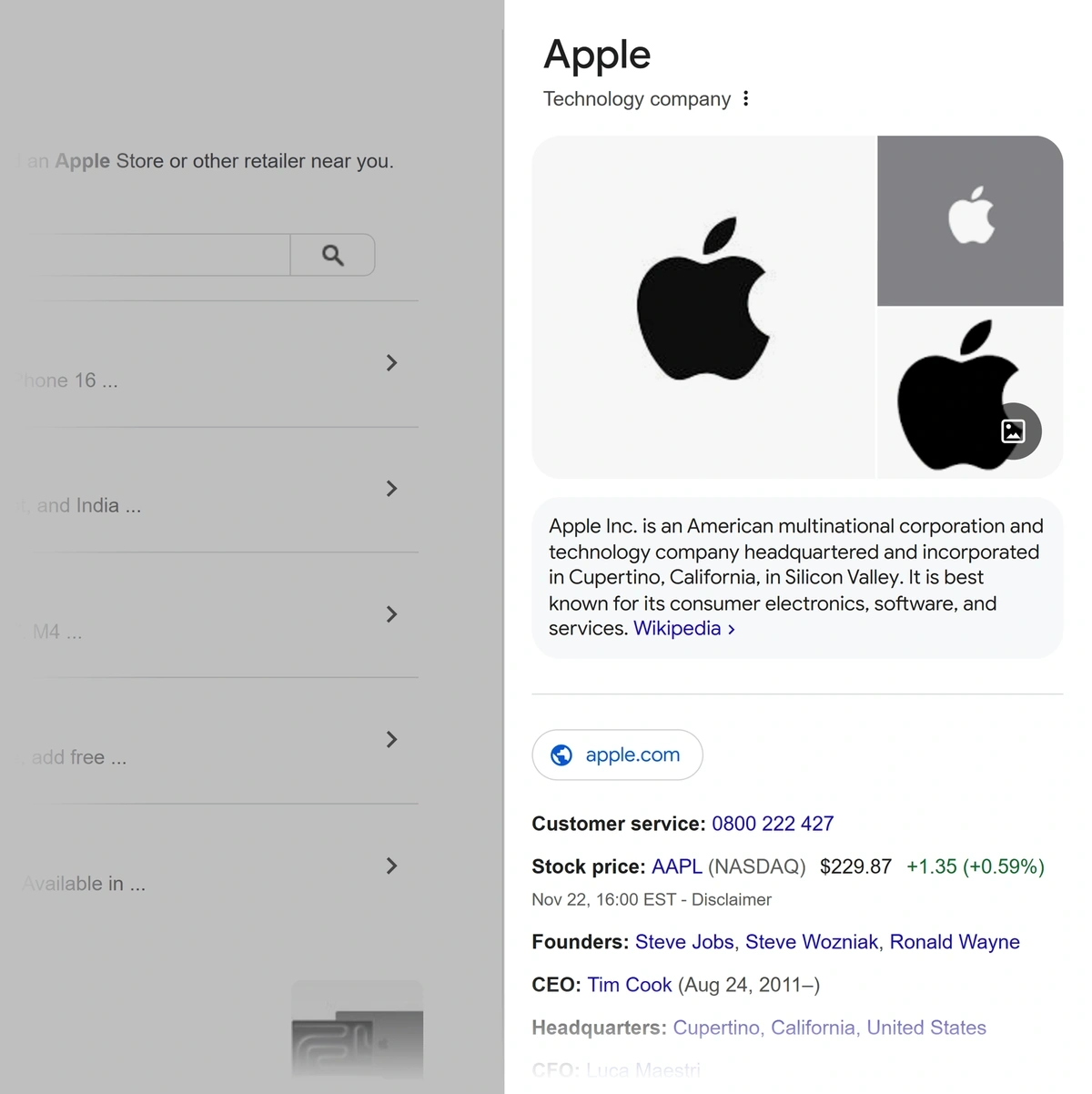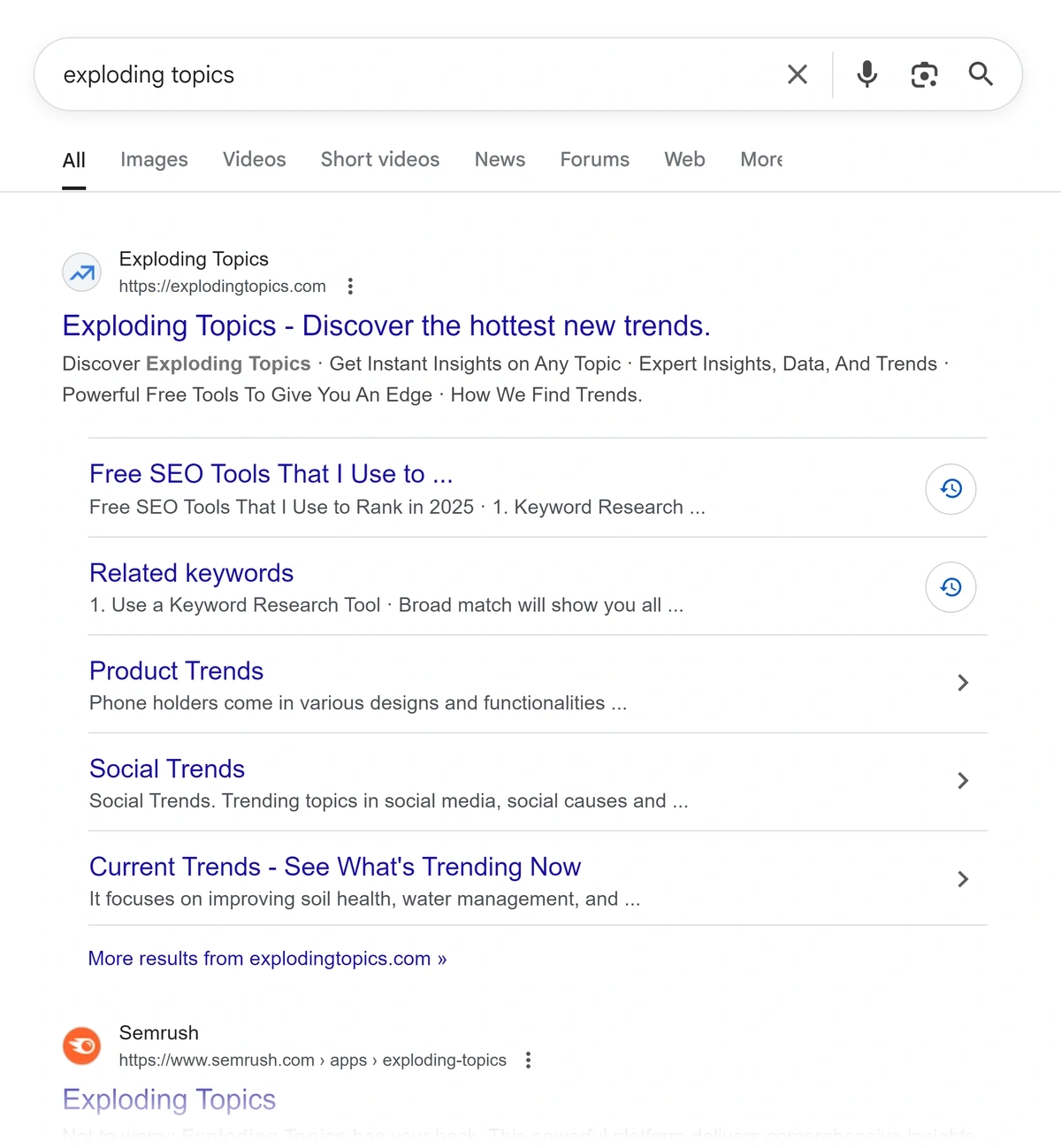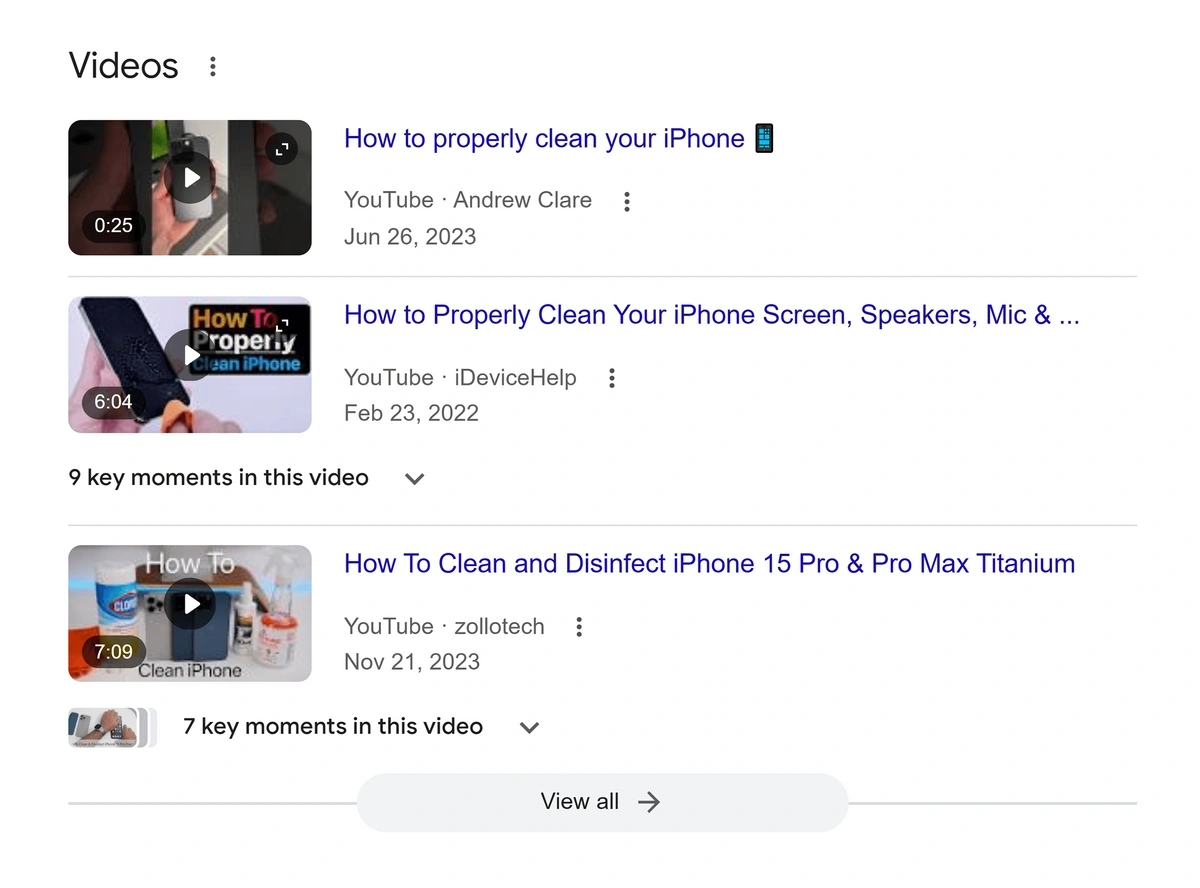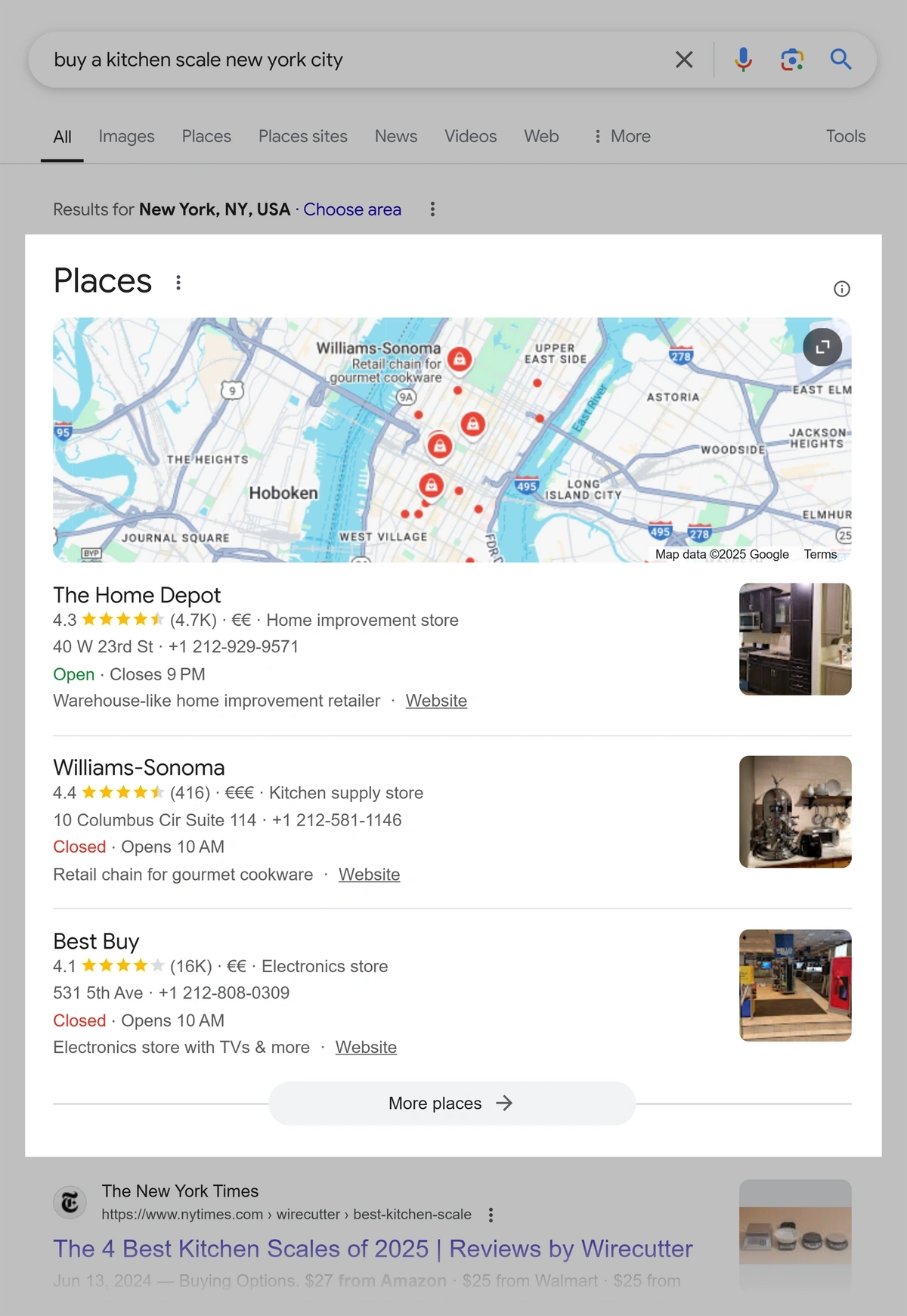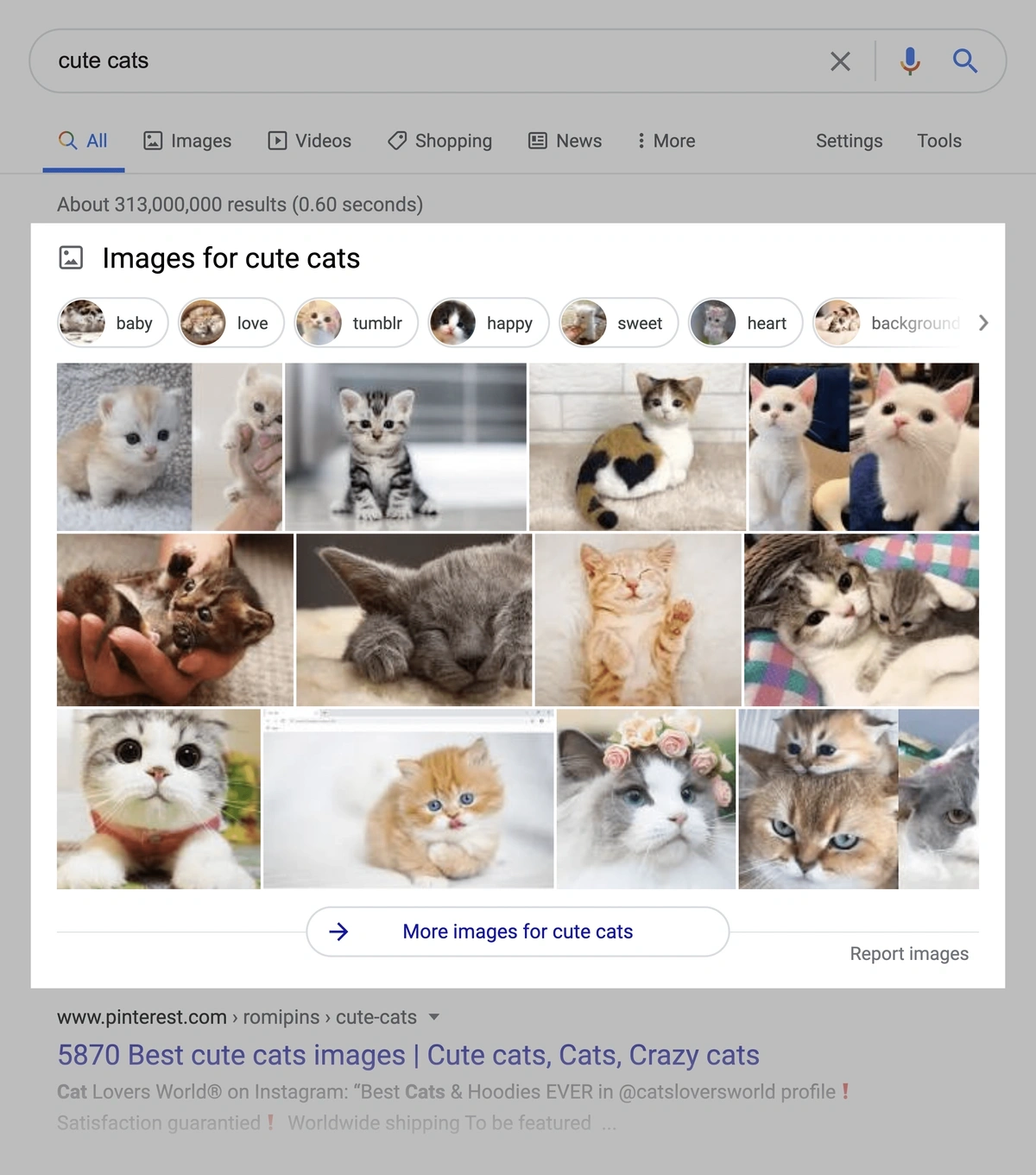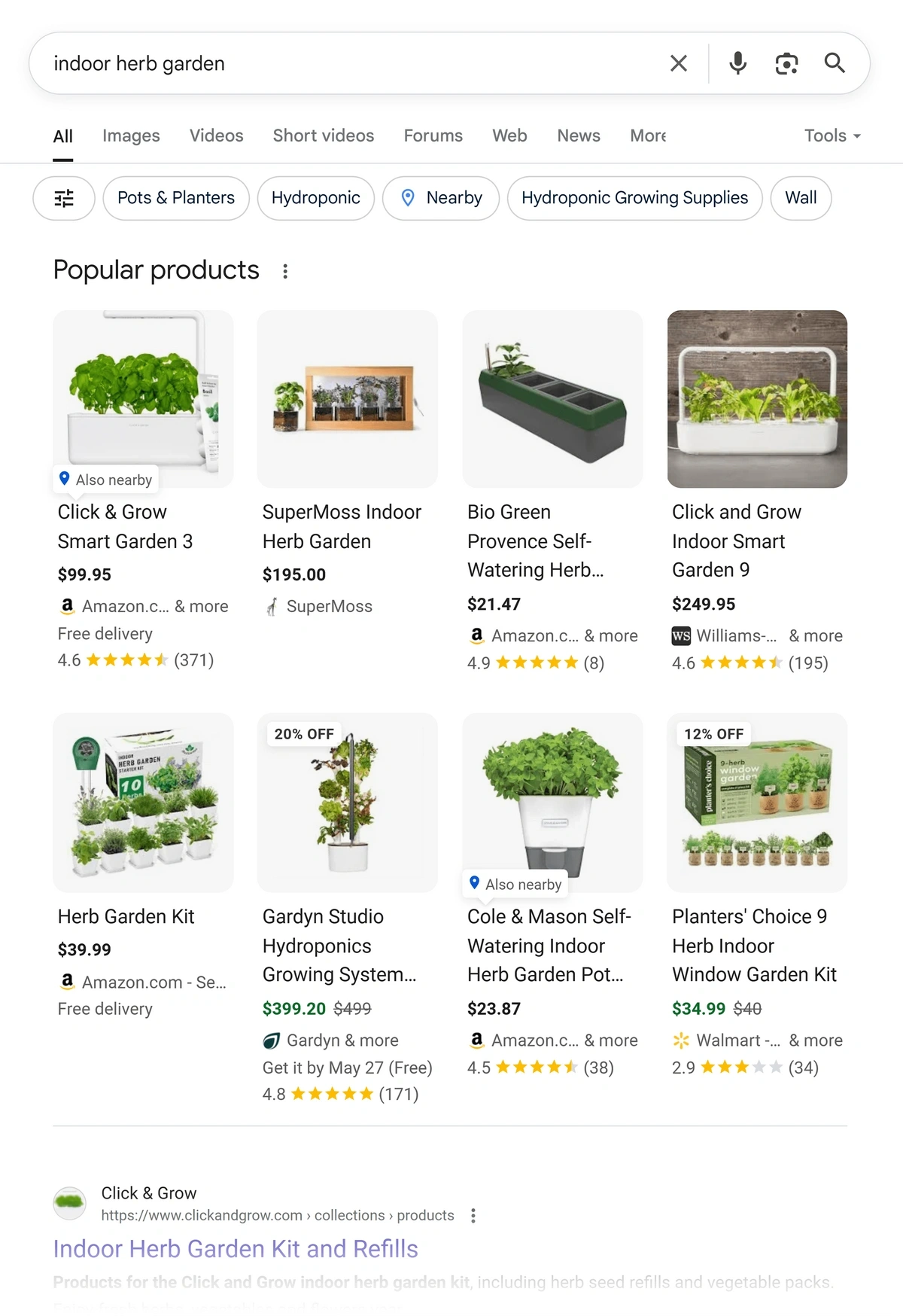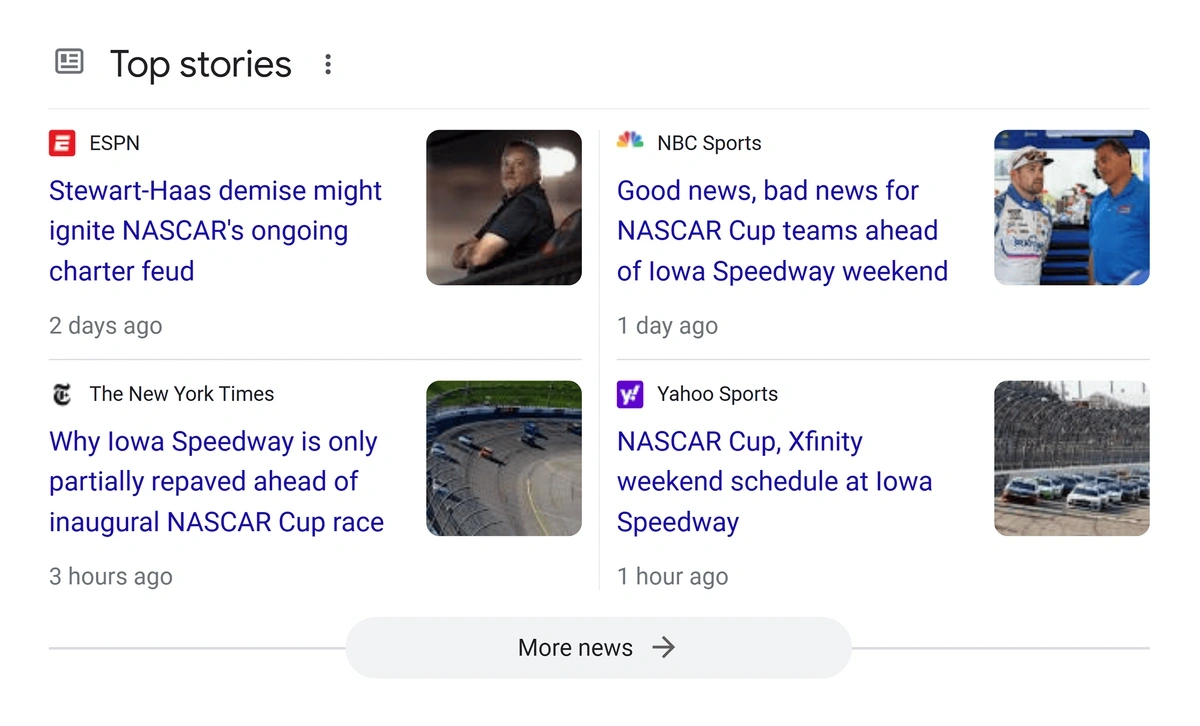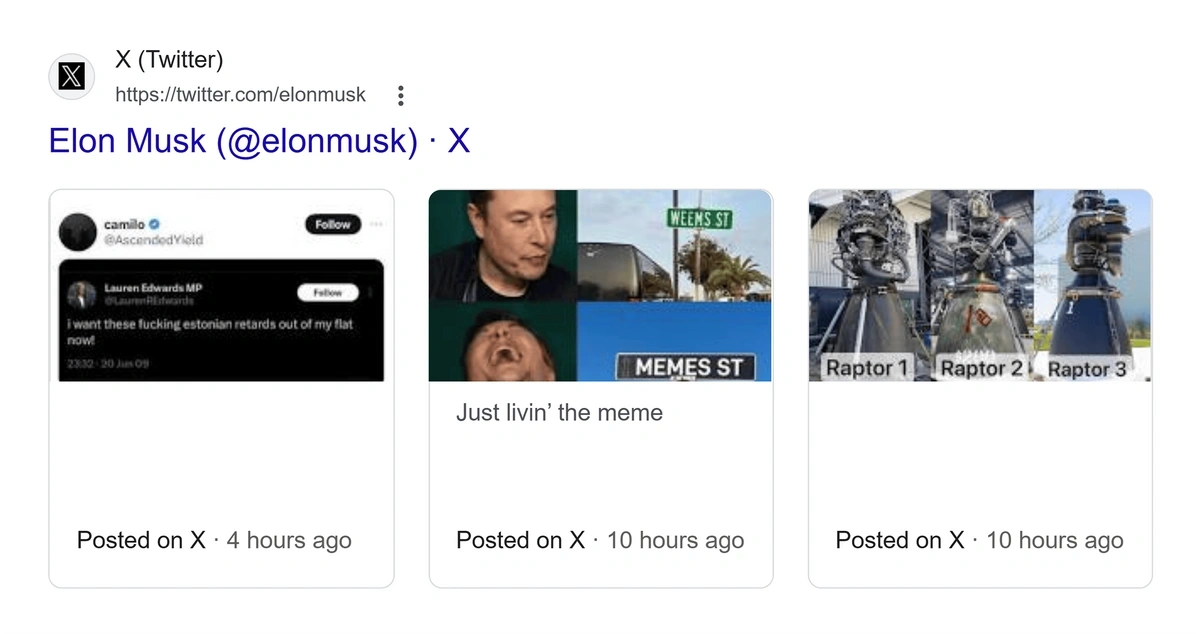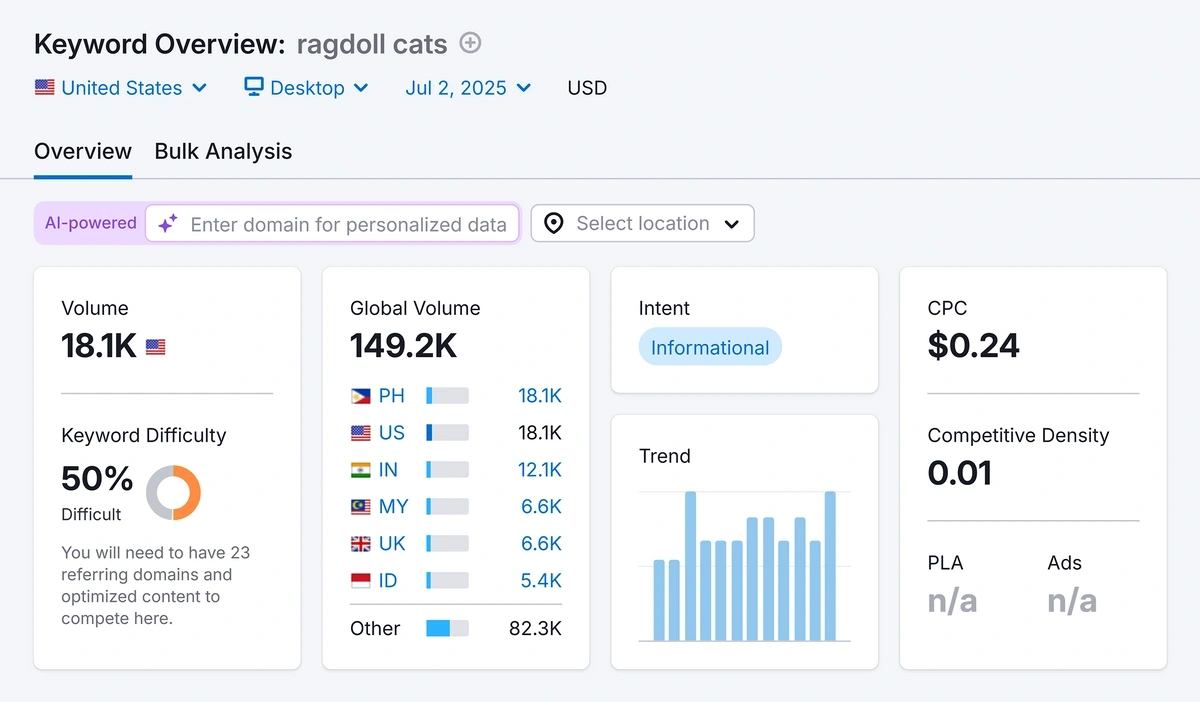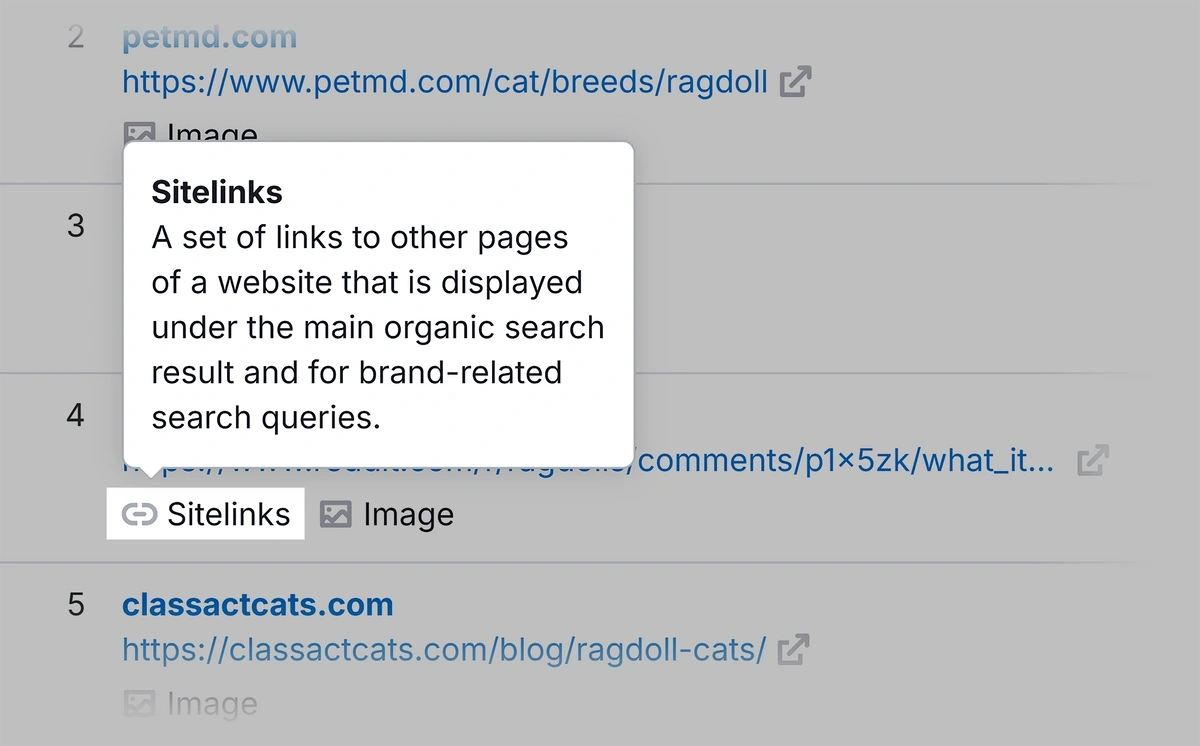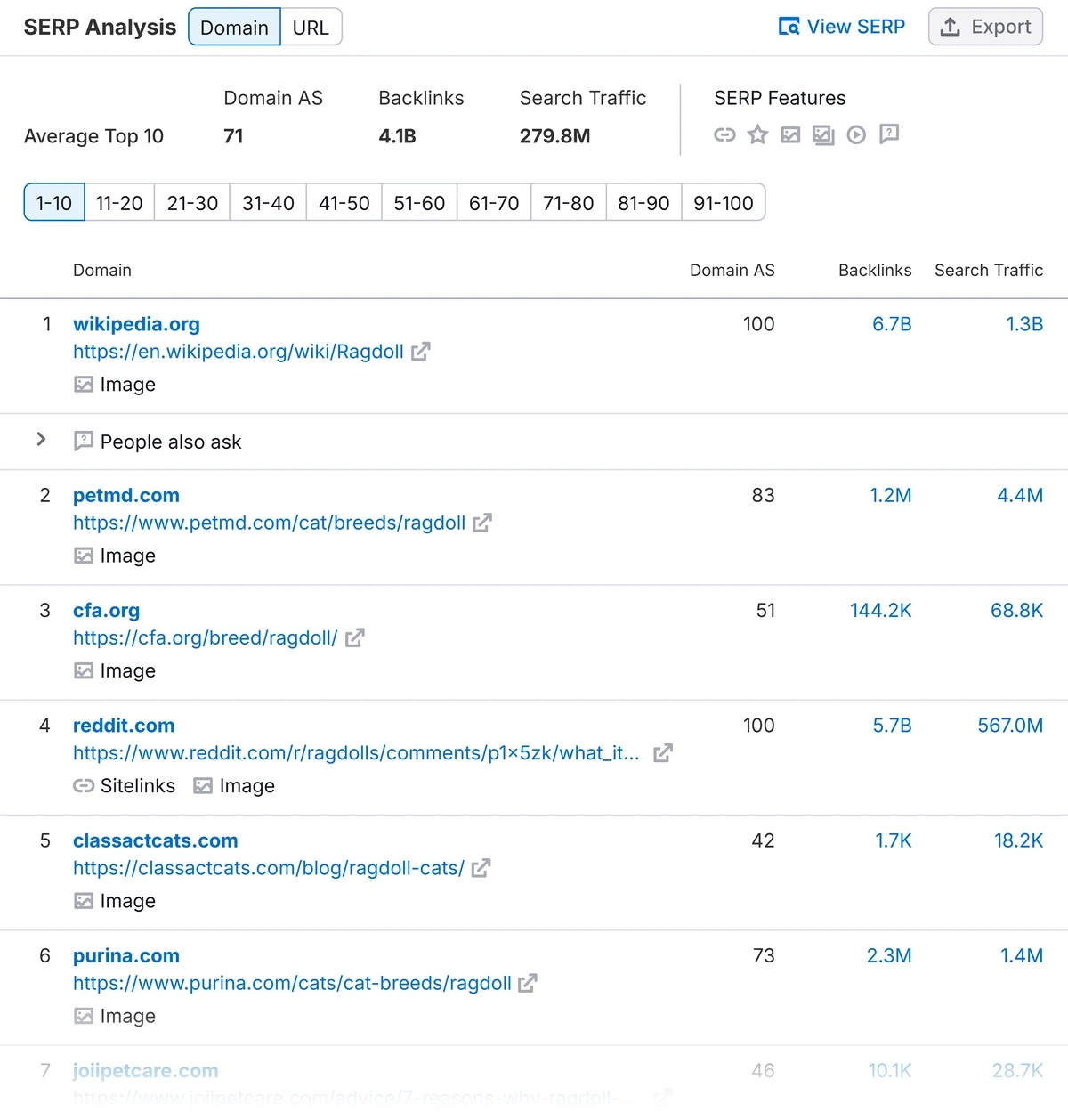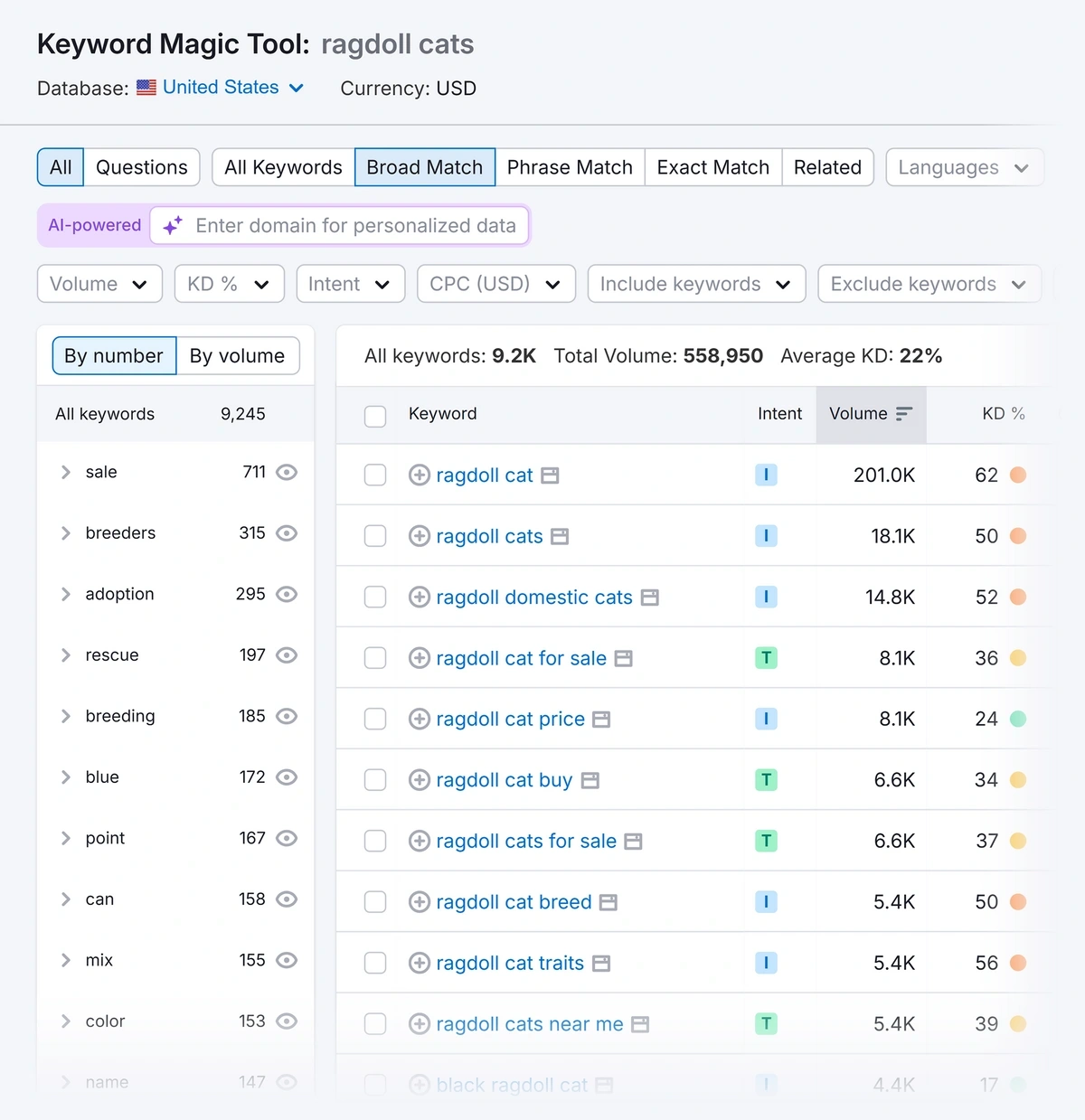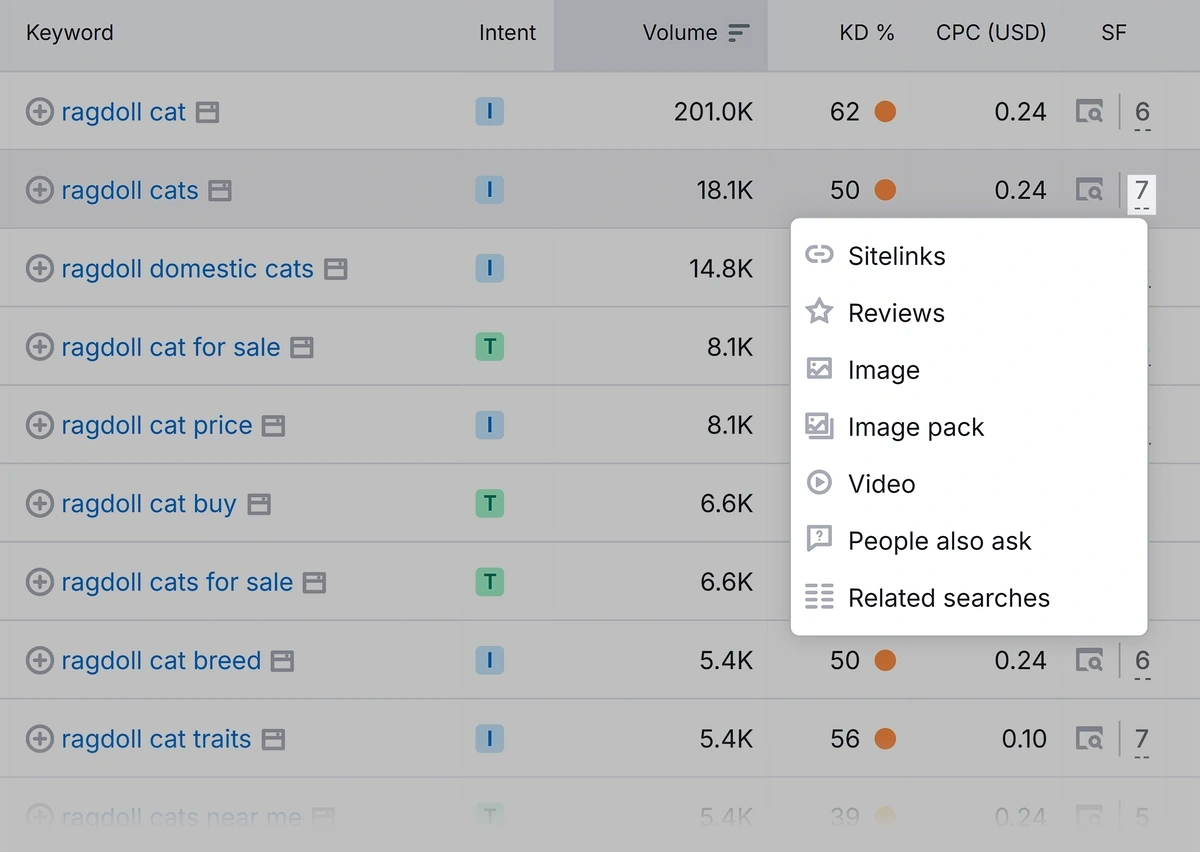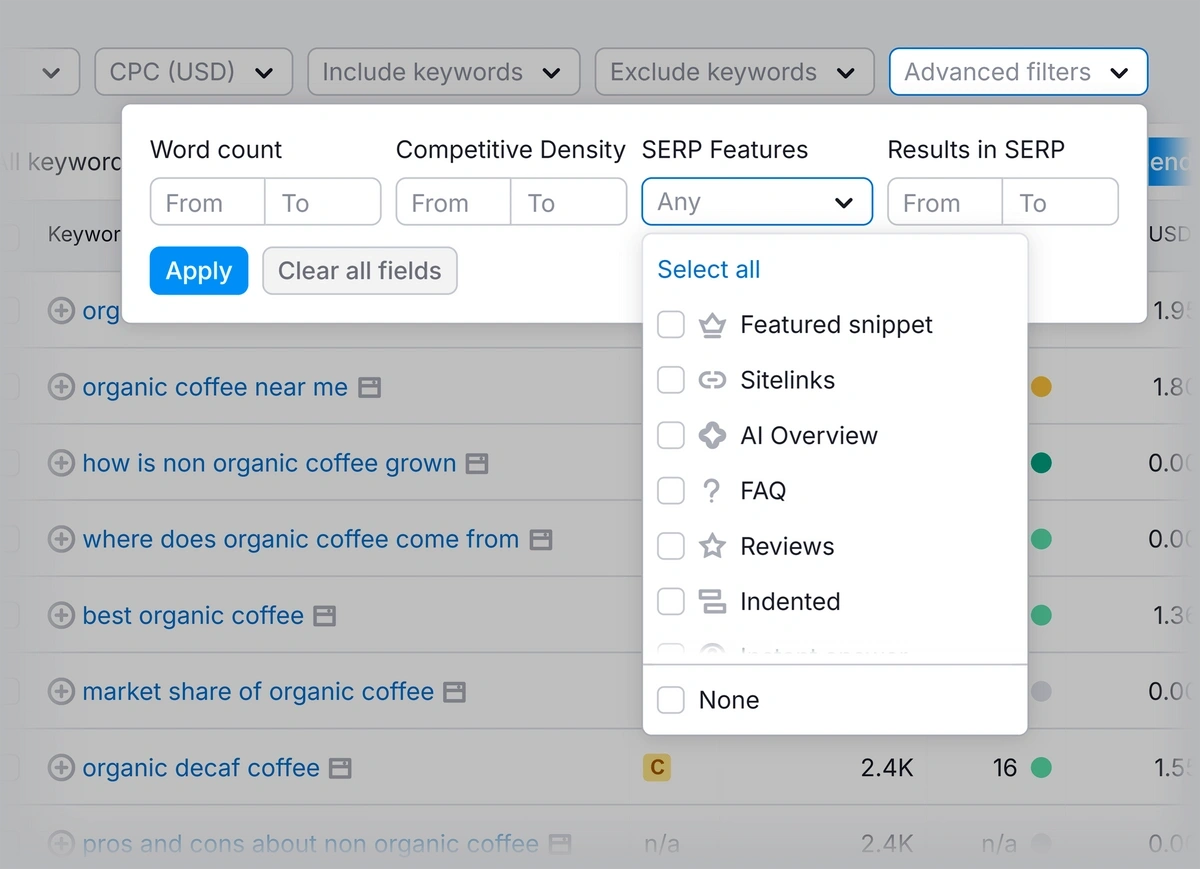Get Advanced Insights on Any Topic
Discover Trends 12+ Months Before Everyone Else
How We Find Trends Before They Take Off
Exploding Topics’ advanced algorithm monitors millions of unstructured data points to spot trends early on.

Keyword Research
Performance Tracking
Competitor Intelligence
Fix Your Site’s SEO Issues in 30 Seconds
Find technical issues blocking search visibility. Get prioritized, actionable fixes in seconds.
Powered by data from
What Are SERP Features? (2025 Analysis + Guide)
As SEO professionals, we spend a lot of time optimizing content so we can rank in the number one spot for our chosen keywords.
We put careful thought and significant effort into this process, which makes it all the more disappointing when you realize your link isn’t even above the fold on the search results page.
SERP features have been growing in prominence for years now. They crowd out organic results and add an additional layer to SEO that you can’t ignore if you want to succeed.
The good news is that once you learn the ins and outs of SERP features, you can optimize for them the same way you optimize for traditional search results.
What Are SERP Features and Why Optimize For Them?
SERP features are the elements on a Search Engine Results Page (SERP) that are not traditional organic search results. They provide information in different formats to try to answer users’ questions in the most helpful way possible.
SERP features are important because they tend to stand out more than regular blue links. They can also push organic results down the page so users have to scroll to see them.
Optimizing your content for SERP features can:
- Send more organic traffic to your website
- Increase brand awareness, even if users don’t click through to your website
- Improve your brand’s perceived authority on the search topic
Knowing the most common SERP features and how they work can help you stand out, even if you’re not ranking in the top ten traditional results.
Get More Search Traffic
Use trending keywords to create content your audience craves.
The Most Common Google SERP Features
Many SERP features can appear in Google search results. The ones that matter most to you will, to some extent, differ based on the type of content you’re publishing.
In my experience, these are the most important ones to be aware of.
Featured Snippets
Featured Snippets are short, simple, direct answers to users’ questions.
They appear in large text near the top of the SERP, and are sometimes referred to as “position zero” because they show above the top page link.
Featured Snippets come in three formats:
- Paragraphs
- Tables
- Lists
Structuring your content strategically can help you win the Featured Snippet for your target keyword.
For instance, if the current Featured Snippet for your keyword is displaying a table, you can add a table to your post to try to outrank your competition.
AI Overviews
AI Overviews are the newest SERP feature and have quickly become a crucial aspect of SEO. They display a short answer at the top of the results that can be expanded to show additional information.
Although AI Overviews can appear for any query, they are most likely to show up for informational searches.
They may cite multiple source pages, which will be linked to the right of the overview.
Alarmingly, however, Exploding Topics research has found that more than 40% of people will rarely or never click these links.
The content shown in AI Overviews is generated by AI, rather than pulled directly from source content.
To see how an AI Overview and other SERP features can impact your traffic, try our simple SEO traffic estimator.
While Featured Snippets provide straightforward answers to users’ queries, AI Overviews are more comprehensive and attempt to answer follow-up questions as well.
People Also Ask
People Also Ask questions appear in a collapsible list on the SERP.
These are questions related to the initial query that Google thinks users might want to know the answers to. They’re often follow-up questions or approach the topic from a new angle.
Each includes a brief answer and a link to the source page. If you expand one of the questions to see the answer, additional questions will appear as well.
In my experience, People Also Ask questions are a great way to attract traffic even if you’re not ranking for the main query.
Learn how to optimize your content to appear in the People Also Ask box.
Google Ads
Google Ads can appear at the top and bottom of the SERP. These are paid results for the keyword, and are denoted with a “Sponsored” label.
Because they can appear above organic results, these are an important SERP feature to be aware of whether you have the budget to invest in ads or not.
If you are looking to run an ad campaign, then we recommend our free Google Ads Competitor Analysis Tool.
Knowledge Panel
Knowledge Panels appear on the right side of the SERP and contain useful background information about a subject. They’re similar to Featured Snippets, but provide more generalized information.
Knowledge Panels appear most often when you’re searching for a specific person, place, thing, or date. They usually include some links back to related pages, although the information is pulled from Google’s Knowledge Graph.
The best way to appear in a Knowledge Panel is to provide information about yourself or your company on an About page on your website.
Rich Snippets
Many of the SERP features I’ve discussed so far are hard to miss, but there are a couple more subtle ones you might want to optimize for as well.
Rich Snippets include information from a piece of content directly in the search result. Some common ones include ratings, prices, and cook time for recipes.
In order for Rich Snippets to appear for your content, you need to incorporate structured data, (sometimes called Schema markup) into your content. This is an element of technical SEO that you can address during a site audit.
Sitelinks
Similar to Rich Snippets, Sitelinks appear within a search result. They can display as additional results under the main page link, with links to other pages on a website.
This type of result usually shows up for branded searches and helps users navigate to different parts of the site.
Sitelinks can also appear as smaller links to sections of the page in the main result. This gives users a peek into what your content covers, which may increase the likelihood that they’ll click through to your site.
Writing clear, informative headings is the best way to optimize for section Sitelinks.
Video Carousel
Video Carousels are search results pulled from YouTube into the Google SERP.
If you don’t have a YouTube channel for your brand, there’s nothing you can do to rank in these results. They don’t appear for most searches, but when they do show up, they take up a lot of space.
Even if you aren’t incorporating video into your content strategy, knowing if keywords you want to rank for display a video carousel is helpful so you can determine how high your content needs to rank to be seen on the SERP.
Local Pack
If your business has a physical location, optimizing for Local Pack results is a must. This SERP feature appears at the top of the page for local searches (think any query with “near me” or a specific city in it) and includes a large map and three links to relevant businesses.
Users can click on links in the map or the More Places button to see additional results.
In order to appear in Local Pack results, you need to create and maintain your Google Business Profile.
Google also considers factors like customer ratings when ranking local businesses.
Encouraging customers to leave reviews and providing quality service will help you appear in Local Packs.
Image Pack
Image Packs are image search results shown on the main SERP for a keyword (as opposed to the image search results page). They usually appear in a line or a grid.
Adding alt text and using relevant file names can help images from your content appear in Image Packs, even for keywords your content is not otherwise ranking for.
This makes image SEO one way you can carve out a spot for your brand on SERPs for highly competitive keywords.
Popular Products
Popular Products results are a key SERP feature for e-commerce sites. They appear for branded searches as well as searches for specific product categories, and drive traffic directly to product pages.
Users searching for these terms are often ready to buy, so appearing in the Popular Products grid can be a huge boost for your business.
It’s important to use high-quality product images and structured data to help Google understand your product pages.
Top Stories
For trending news topics, Google may show Top Stories above the organic search results.
All the sources linked in the Top Stories are from Google News–approved sites.
Top Stories can push organic results below the fold, so you’ll want to keep that in mind when you’re optimizing for keywords that display this type of result.
X (Twitter) Cards
The last SERP feature I’ll mention here is X Cards. These are tweets that appear in the SERP, usually for specific people or brands.
The cards in the carousel link back to Twitter, so they won’t drive traffic to your site, but can still help with social media engagement and brand awareness.
How to Do a SERP Feature Analysis in Semrush
Once you understand the basics of Google SERP features, you can incorporate them into your SEO workflow. Semrush makes it easy to do a SERP feature analysis during the keyword research phase.
SERP Feature Analysis in the Semrush Keyword Overview Tool
When you type your target keyword into the Keyword Overview tool, you’ll first see stats like search volume and keyword difficulty.
If you scroll down to the SERP Analysis section, you’ll see several icons under “SERP Features.” You can hover over each to see more information.
You’ll also see these icons in the SERP analysis to indicate SERP features that are present and where they’re placed in the results.
Let’s talk through the example of the keyword “ragdoll cats.” The SERP includes People Also Ask questions, which tells me that the search intent is informational.
If I’m creating content about ragdoll cats, I would want to look at the questions that are appearing in the People Also Ask section of this SERP and try to include the answers to those questions in my content.
I can also see that there are a lot of images showing up on this SERP. That tells me that I need to pay extra attention to image SEO when I’m creating my content. I might even consider including more images in my piece than I normally would.
SERP Feature Analysis in the Semrush Keyword Magic Tool
Another approach to SERP feature analysis that Semrush supports is to look at keyword variations in the Keyword Magic tool, and choose a longtail keyword to target based on which SERP features come up for that query.
Once you type in your keyword, you’ll see a table with different variations. Look for the column labeled “SF.”
The number listed here tells you how many SERP features are appearing for the keyword. If you click on the number, you’ll see a list of which types of SERP features are showing up.
You’ll then know which SERP features to optimize for if you want to maximize your visibility for that specific keyword.
You have yet another option for analyzing SERP features in the Keyword Magic tool. If you know you want to optimize for a Featured Snippet, for example, you can find all the keyword variations that display Featured Snippets and focus on optimizing your content for one or more of those terms.
Above the table, click on the Advanced Filters dropdown. Then use the SERP Features dropdown and select the features you want to optimize for.
When you apply your filters, you’ll only see keywords that bring up one or more of the SERP features you selected.
So, no matter how you want to go about analyzing SERP features, Semrush has you covered.
It’s easy to find out which SERP features are appearing for a specific keyword, or to find keywords that bring up the type of SERP feature you want to optimize for.
This flexibility is one of the many reasons I enjoy using Semrush for keyword research and topic planning. It’s the easiest way to identify valuable opportunities to appear in Featured Snippets, People Also Ask boxes, and more.
You can get a free Semrush account today and see just how easy it is to analyze SERP features and optimize your content to get more visibility.
Stop Guessing, Start Growing 🚀
Use real-time topic data to create content that resonates and brings results.
Exploding Topics is owned by Semrush. Our mission is to provide accurate data and expert insights on emerging trends. Unless otherwise noted, this page’s content was written by either an employee or a paid contractor of Semrush Inc.
Share
Newsletter Signup
By clicking “Subscribe” you agree to Semrush Privacy Policy and consent to Semrush using your contact data for newsletter purposes
Written By


Molly is a technical content writer with a passion for making technology easy for anyone to understand. She specializes in content... Read more




